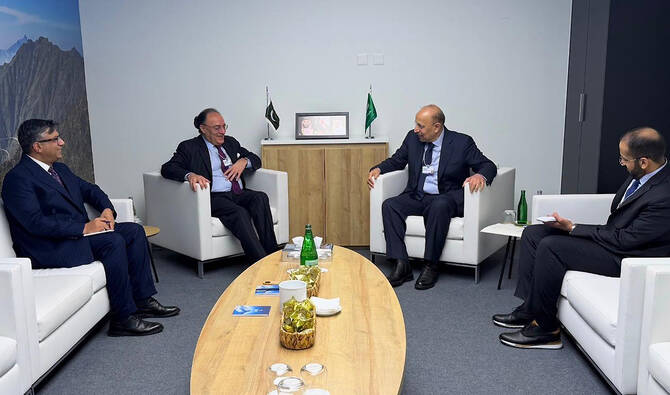ISLAMABAD: Pakistani Prime Minister Shehbaz Sharif on Thursday inaugurated a 1,100-megawatt nuclear power plant in the southern port city of Karachi built with Chinese assistance to augment the supply of electricity, emphasizing the need to transition to clean energy sources so that the cash-strapped country could reduce fuel import costs.
At present, the South Asian nation relies heavily on imported fossil fuels to produce energy, which the prime minister said cost $27 billion per year. Last year, Pakistan said it would increase the share of clean energy in its energy mix to 60 percent by 2030. Currently, the share of renewable energy is only about 4 percent, according to government data.
Oil and energy make up the largest portion of Pakistan’s import bill.
Speaking at the nuclear plant’s inauguration ceremony in Karachi, PM Sharif said Pakistan “desperately” needed to move toward clean energy sources.
“The K-3 Project, the third unit of the Karachi Nuclear Power Plant, will lead to the production of 1,100 megawatts of electricity,” PM Sharif said. “This project will augment the power of the plant for Karachi by 2,200 megawatts and will be a step forward in cooperation with Pakistan’s trusted friend China ... I am happy to say that this project will provide Pakistan with cheaper energy in the years to come.”
“While its upfront price is pretty high, like any other hydel project, in 10 to 15 years, it will taper down to a very reasonable level,” the premier said.
Sharif added that he would be holding discussions with Chinese officials tomorrow, Friday, on a pricing mechanism combined with the best possible terms and conditions.
“I hope our Chinese side is fully convinced and appreciates Pakistan’s challenges and problems, therefore, we expect that our Chinese friends will significantly reduce per megawatt price and other terms and conditions,” he said.
The premier added that Chinese cooperation would enable the government of Pakistan to sign another contract for 1,200 megawatts of nuclear energy, called the Chashma Nuclear Power Project-5 (C-5).
The premier said while Pakistan’s hydel power generation system had the potential to generate 60,000 megawatts of electricity, the country was only able to produce 10,000 megawatts, which he said was a “great national loss.”
“Solar energy and wind power generation can play a very important role in reducing Pakistan’s energy imports as the country is currently importing petroleum products to the tune of $27 billion to produce energy, an amount we can hardly afford to finance,” Sharif said.












